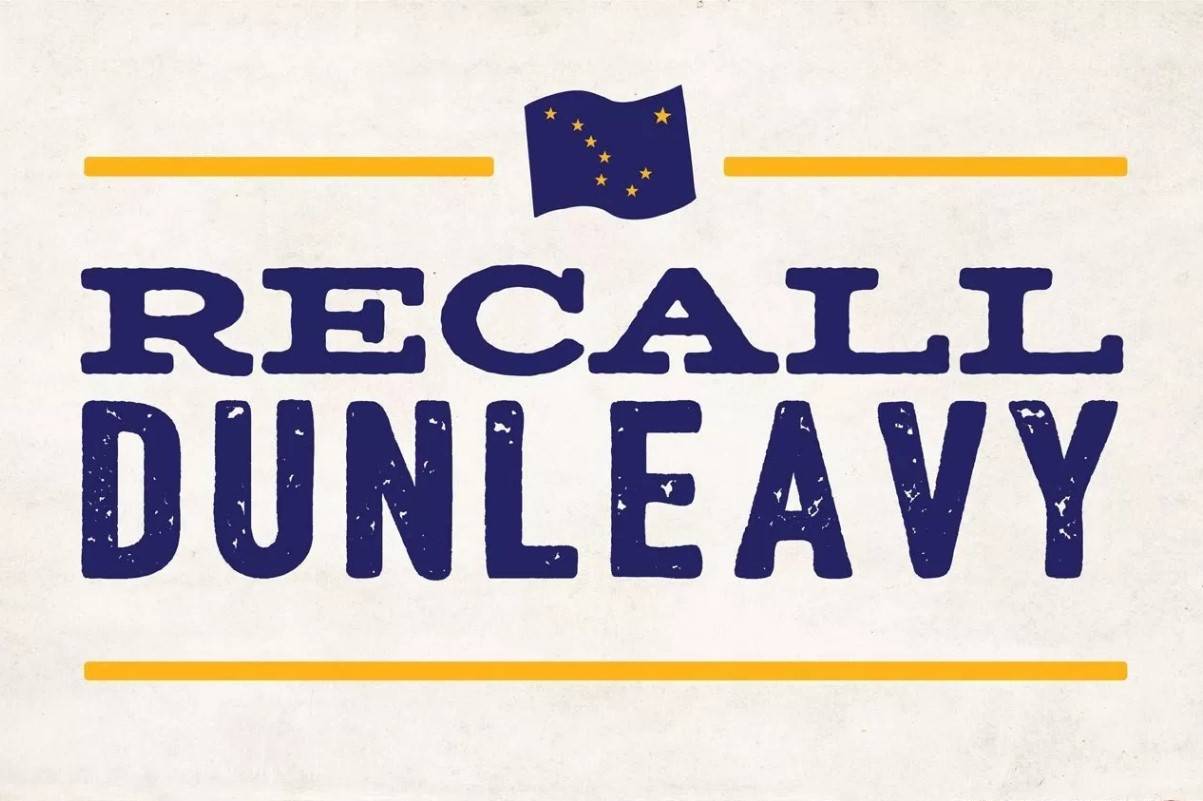The Recall Dunleavy campaign’s application for a petition in the recall process was denied Monday, according to a press release from the Department of Law.
While the application had enough valid signatures and met all the technical requirements, DOL found in its review that the application was “both factually and legally insufficient to meet the statutory grounds for recall,” the release said.
“As a matter of law, recall cannot be premised upon disagreements with the elected official’s policies,” Attorney General Kevin Clarkson said in a statement.
Shortly after Clarkson made his announcement, the Recall Dunleavy campaign released their own statement saying they would challenge the rejection in court.
“This rejection is without basis, and we will now turn to the courts for a remedy,” said Jahna Lindemuth, one of the lawyers for the campaign and former Attorney General.
“We disagree with the Attorney General’s decision,” said Claire Pywell, campaign manager for Recall Dunleavy. “We’re appealing the decision tomorrow,” she told the Empire in a phone interview Monday afternoon.
The governor released his own statement on the decision praising Clarkson’s opinion.
“As I have always said, the allegations by the recall group are not legitimate reasons to overturn the outcome of the statewide election held barely a year ago,” the governor’s statement said. “My priorities continue to be making Alaska safer for all Alaskans, growing the economy and enacting a solution to the state’s budget deficit.”
In addition to gathering enough signatures, a successful recall application must demonstrate an elected official has shown neglect of duties, incompetence or lack of fitness.
In its application the Recall Dunleavy campaign had stated that Gov. Mike Dunleavy had violated Alaska law by not appointing a judge to the Palmer Superior Court within the allotted 45 days following nominations.
The campaign also accused the governor of violating state law and the constitution by using public funds for partisan purposes in the form of electronic advertisements and direct mailers.
The governor also, the campaign alleges, violated the seperation-of-powers clause by using line-item vetoes to, “attack the judiciary and the rule of law,” and “preclude the legislature from upholding its constitutional Health, Education and Welfare responsibilities,” according to the campaign’s website.
Lastly the campaign’s application said Dunleavy acted incompetently when he, “mistakenly vetoed approximately $18 million more than he told the legislature in official communications he intended to strike,” the application said.
In its review of the recall application, DOL said that while Dunleavy did in fact fail to appoint a judge to the Palmer Superior Court within 45 days, the Alaska constitution does not impose a deadline, only a statute does.
Furthermore, the review said, “the facts also fail to allege that the judicial position was vacant, or that the failure to appoint within the forty-five day window created an unfilled vacancy, strained court resources or created an inability to timely process cases.”
To the using of state funds for partisan purposes, the review says electronic advertisements and mailers can be covered by state funds. It goes on to say the application does not give specific examples of what partisan statements were made in the advertisements and mailers in question.
“The allegation provides no specific facts to establish that these were unlawful partisan statements made for partisan purposes,” the review said.
In response to the allegation that the governor attacked the judiciary using line-item vetoes, the review says that the courts are not exempt from the governor’s veto powers.
“The governor’s use of the constitutionally granted line-item veto authority is absolutely legal, purely discretionary, and disputes over policy cannot be grounds for recall,” according to the review.
On the last allegation of incompetence, the review attributes the mistake in veto amounts as a “scrivener’s error” (a scrivener being a clerk).
“One scrivener’s error does not amount to a showing of lack of knowledge, skills, or professional judgment required to perform the discretionary duty of line-item vetoes on an appropriations bill.” the review said. “If this amounts to incompetence, then every governor and legislator could be recalled for any technical error made on an official document or letter.”
The Recall Dunleavy campaign began August 1, following the governor’s July announcement that $444 million would be cut from the state budget. According to the campaign’s website, just over 49,000 signatures were collected statewide.
This is a developing story, check back later for updates.

